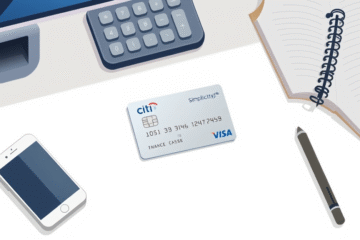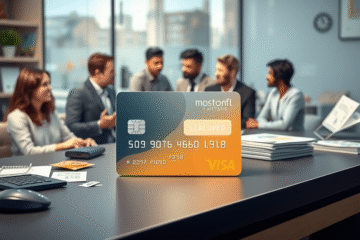Simple Tips to Avoid Interest on Your Credit Card
Credit Card management is essential for maintaining financial health and avoiding unnecessary debt.
In this article, we will explore effective strategies for managing your credit card payments, focusing on the importance of paying your full statement balance by the due date.
By taking advantage of the interest-free grace period and avoiding carrying a balance into the next billing cycle, you can save money and improve your credit score.
We will also discuss what to do if you can’t pay off your balance completely, along with tips for making multiple payments throughout the month to minimize interest charges.
Fundamentals of Credit Card Interest
Understanding how credit card issuers calculate interest provides valuable insight into managing debt effectively.
At the heart of this lies the billing cycle, the time between statement opening and closing dates.
During a billing cycle, credit card companies monitor purchases and payments, determining the balance at the cycle’s end, known as the statement balance.
If you pay this balance fully by the due date, you benefit from an interest-free period, avoiding any interest charges.
According to Navy Federal Credit Union, failing to pay the entire amount results in interest calculated daily on the outstanding balance, carried into the next billing period.
It is crucial to grasp the roles of statement closing and payment due dates in navigating interest-based pitfalls.
Effective strategies to steer clear of interest practices involve:
- Making full payments within the interest-free period
- Paying more than the minimum payment
- Understanding and keeping track of your billing cycle
These approaches help maintain financial well-being and leverage creditor terms advantageously.
Implementing Key Payment Strategies
Implementing effective payment strategies is crucial for maintaining a healthy financial profile and keeping interest charges at bay.
By understanding and practicing key payment behaviors such as paying the full statement balance by the due date, making minimum payments, and considering multiple payments throughout the month, individuals can take substantial steps towards avoiding interest on their credit cards.
This exploration will delve into each technique, providing valuable insights on how to effectively manage payments and maximize the benefits of an interest-free grace period.
Paying the Full Statement Balance by the Due Date
Paying off your full statement balance on or before the due date is crucial for avoiding interest charges associated with revolving credit card balances.
By settling the amount owed in full by the time your bill is due, you
eliminate any potential interest accrual
that your card issuer might impose if you carry a balance into the next billing cycle.
This simple yet effective strategy can significantly benefit your financial well-being.
One practical tip to ensure you never miss an on-time payment is to set calendar alerts as reminders of your due date.
Additionally, you might consider automating your payments through your bank or credit card’s online platform; many services provide this option, such as Capital One’s payment options.
Automating ensures relevant tasks are taken care of without needing to remember manually.
Noteworthy benefits of paying off in full include:
- Stops interest immediately
- Boosts credit score
Moreover, making frequent payments throughout the month will also help in managing cash flow and avoiding the last-minute scramble of finances.
Adopting these practices not only strengthens your credit profile but promotes disciplined financial habits.
Utilizing the Interest-Free Grace Period
Understanding how the interest-free grace period on credit cards operates can be pivotal for effectively managing your finances.
This period, typically lasting up to 21 days between the end of a billing cycle and the payment due date, allows cardholders to avoid interest charges.
For instance, if your billing cycle ends on October 15th, you may have until November 5th to pay the balance without accruing interest.
Paying the entire balance within this window ensures you benefit from the interest-free period, effectively using your credit without paying extra.
Consider an illustrative scenario: Jane enjoys her vacations and plans her spending.
Understanding her credit card grace period, she makes a large purchase of $1,000 just after the billing cycle starts, ensuring maximal time to arrange her finances.
By budgeting carefully, she pays off her balance before the due date, thus avoiding any interest.
Cardholders can optimize their finances by timing purchases to fit within the grace period, using resources like NerdWallet’s insights on grace periods for further guidance.
By planning expenditures around the grace period, you can enjoy the advantages of temporary credit without the burden of high interest charges.
Avoiding Balance Carryover to the Next Cycle
Allowing a credit card balance to roll into the next billing cycle can have significant financial repercussions.
Carrying a balance leads to accruing interest, quickly increasing your debt load, as noted by CNBC.
To prevent this, implementing effective budgeting strategies is crucial.
Regular budget reviews can help manage your spending, ensuring you have enough to pay your statement in full by the due date.
Additionally, conducting mid-cycle check-ins will enable you to adjust your expenditures proactively.
These practices can help keep your balance at zero, thereby avoiding potential interest fees.
According to CNBC Select indicate, making at least the minimum payment secures your financial position and prevents default.
Moreover, keeping this habit shields your financial stability and makes it easier to tackle debt in the long term.
For your credit score’s sake, never miss the minimum.
Paying more whenever possible accelerates debt reduction, but when you’re constrained, at least covering the minimum safeguards your financial health.
It’s a simple yet effective strategy to ensure you’re not caught in escalating debts, offering cushion to plan for paying down the balance gradually.
Remain diligent and prioritize these payments as a key financial strategy.
Scheduling Multiple Payments Throughout the Month
Scheduling multiple payments throughout the month can be a smart strategy for managing your credit card.
By breaking your balance into several smaller payments, you effectively lower your average daily balance, which in turn reduces the amount of interest you might owe.
This approach offers a more manageable way to keep up with expenses, offering better control over your budgeting.
For instance, using a helpful tool like a budgeting app can assist in organizing your payment schedule seamlessly, ensuring you never miss a due date.
By aligning payments closer to your pay periods, it becomes easier to allocate funds and avoid carrying a balance into the next billing cycle.
Additionally, frequent payments contribute to significant interest savings over time.
This strategy not only alleviates financial stress but potentially improves your credit score by lowering your credit utilization.
Imagine having the flexibility to make payments whenever it suits you best—each payment brings you another step closer to financial freedom.
Remember, staying on top of your payments means taking charge of your financial health, giving you the power to decide how you manage your money effectively.
Credit Card users can significantly benefit from understanding and implementing smart payment strategies.
By following the tips outlined in this article, you can manage your credit card effectively, avoid interest, and maintain a healthy financial future.



0 Comments